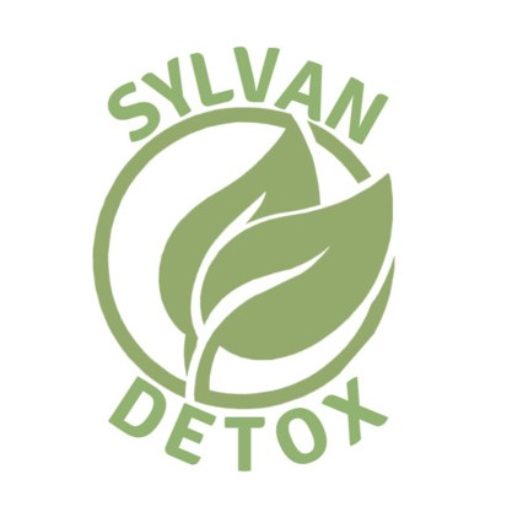Did you know that over 40 million Americans are living with an anxiety disorder? Almost 20 percent of the population of adults over the age of 18 are living with one. But only 36% of those with anxiety receive treatment for it. To add to the complexity many people with anxiety also have a co-occurring mood disorder or physical injury, which must be treated with the anxiety to have any effect. People living with anxiety are two to three times more likely to develop a substance abuse disorder than the general population. About 20% of people with anxiety have a substance abuse disorder, and 20% of people with a substance abuse disorder also have anxiety.
If you or a loved one is suffering from any form of addiction or abuse, please call Sylvan Detox at (818) 308-3099.
Alcohol and anxiety
Anxiety is a serious medical illness, as real as diabetes or heart disease. It is often experienced alongside depression, a mood disorder where you feel disinterested, unmotivated, sad, hopeless, and discouraged about life to the point it interferes with your daily routine. Anxiety is a broad, umbrella term for several mood disorders including PTSD, GAD, panic disorder, and obsessive-compulsive disorder.
But how does anxiety work on the brain? In plain language, the area of your brain that makes decisions detects a threat, this triggers the amygdala, which sends a message to the hypothalamus. These systems together form the limbic system and control the fight-or-flight response in our brain, our ancient response to danger. You may experience rapid heart rate and breathing as your body prepares itself to flee, pale or flushed skin, and tense muscles as your limbic system releases hormones into your body, including cortisol. People with anxiety disorders are found to have increased activity in the limbic system.
Alcohol works by depressing our central nervous system, which can provide a temporary feeling of relief from the hormones our bodies release when our limbic system activates. There are many examples in television and movies of a character pouring a stiff drink when given stressful news, and although many adults use alcohol in a responsible manner people with anxiety are at a significantly higher risk of developing alcoholism. Using “liquid courage” to help you relax in a social setting may seem like an easier, cheaper option than medication or therapy but alcohol abuse damages the heart and increases your risk of cancer significantly in several organs. And although a drink or two may feel like you’re reducing your stress long-term alcohol use increases anxiety. The more you use alcohol to cope with feelings of anxiety the higher your tolerance becomes for the sedating effects of alcohol. About 1 in 5 people with anxiety report using alcohol to cope with stress, you aren’t alone in this struggle.
Signs of Self Medicating Anxiety with Alcohol
What does self-medicating even mean? Simply put it’s managing the symptoms of your illness by the misuse of drugs or alcohol. People self-medicate for a variety of reasons, the symptoms of anxiety are extremely distressing and drinking may make those symptoms feel more tolerable at that moment. Many, many people also have no other way to cope with the things they are feeling as well. Some common signs of self-medicating include
- Avoiding family, friends, and social activities
- Sudden changes in hobbies or friend groups
- Being secretive about drinking
- A decline in personal hygiene
- Neglecting the basics of self-care such as eating
- Experiencing difficulties at work or school
- Increased anger, especially if disproportionate to the cause
- Financial difficulties due to increased spending on alcohol
Your risk for self-medicating with alcohol will increase exponentially with the following factors
- Depression
- Bi-polar disorder and other mental illness
- Childhood trauma
- Physical or emotional abuse
Dangers of Self-Medicating Anxiety with Alcohol
Alcohol has extensively studied, negative effects on both our bodies and our minds, which increase with use over time. It negatively affects many parts of the brain, including the cerebellum (movement and balance), and the cerebral cortex (thought processing). Some long-term, negative effects of alcohol consumption are
- High blood pressure, heart disease, stroke, and liver disease
- Cancers of the breast, mouth, esophagus, liver, colon, and rectum
- Learning and memory problems including dementia
- Mood disorders
- Substance abuse disorders (addiction)
- Social problems
- Obesity
- Brain damage
On average a person who regularly consumes excessive amounts of alcohol shortens their lifespan by 26 years, compared to those that don’t, but even 10 drinks a week greatly increases your risk of long-term negative health problems.

Co-Occurring Disorders: What are They?
People with mental illness are much more likely to experience a substance abuse disorder than those who do not. It’s an unfortunate statistic, as life for those with mental illness is already harder. Over 9 million Americans are living with co-occurring disorders, the combination of a mental illness and substance abuse disorder. Some of the most common illnesses seen when treating substance abuse disorders are
- Anxiety and mood disorders
- Bipolar disorder
- Schizophrenia
- Conduct disorders
- PTSD
- ADHD
The good news is that co-occurring disorders are treatable with a combination of medication, and therapy that specifically address both mental illness and addiction. We use an integrated approach to treat your co-occurring disorders at Sylvan detox.
Dual Diagnosis Treatment
If you have both a substance abuse disorder and a mental illness you are much more likely to require hospitalization than if you had just one of these diseases. Integrated treatment coordinates care for both substance abuse and mental illness and provide the best recovery outcomes. Combined with early detection integrated treatment can improve outcomes and quality of life for people with co-occurring disorders. At Sylvan detox, we offer several types of therapy including
- Cognitive behavioral therapy
- Dialectical behavioral therapy
- Nutrition counseling
- Creative healing
- Relapse prevention
- Anger management
- Cognitive restructuring
- Denial management
- Interpersonal psychotherapy
It is important to treat not just the addiction to alcohol, but any other mental illness that may be present to give you your best chance of recovery. At Sylvan detox, we provide the best care and offer you your best chance at recovery.
Treatment for Addiction and Mental Health at Sylvan Detox
At Sylvan Detox we apply an integrated approach to treating co-occurring disorders. Our treatment facility and programs are certified by SAMHSA, and we provide evidence based, whole body treatment programs to our patients. When you enter treatment with us you will undergo a complete biopsychosocial assessment that will help our experts determine your optimal treatment path. Our modern, well-appointed, and luxurious facility offers you the comforts of home under the watch of our 24/7 medical team so you can safely detox from the effects of alcohol addiction. Remember that substance abuse disorder/addiction is not a moral failing or a flaw in your character, but your physiological response to trauma and the symptoms of any mood disorder or mental illness you might be struggling with. The first step towards good health is asking for help, reach out to our call center today to discuss how to begin your journey to recovery. Our staff cares deeply about your success, we are here to listen and we are here to help. You don’t have to face this battle with addiction alone, our nurses, doctors, and clinical therapists are here to support you.

